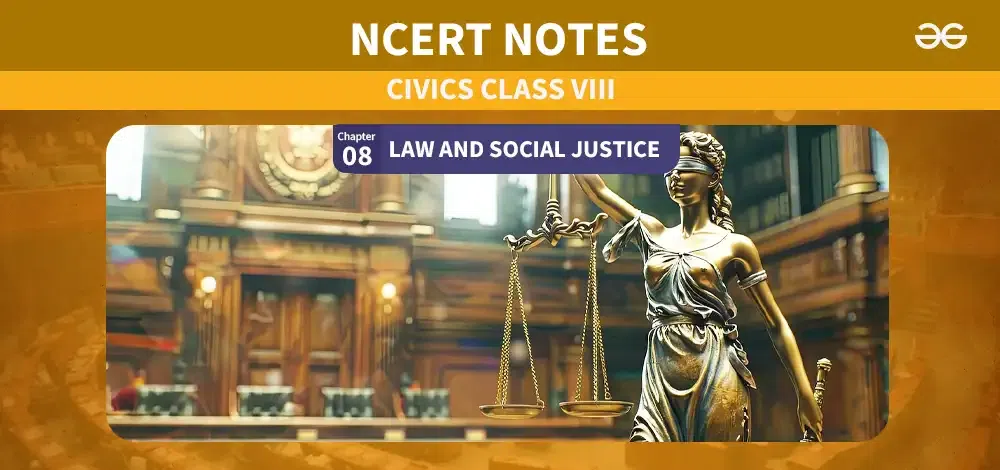
|
|
To safeguard individuals from exploitation, the government enacts laws aimed at minimizing unfair practices within markets. Many of these laws are rooted in the Fundamental Rights enshrined in the Indian Constitution. For instance, the Right against Exploitation prohibits forced labor or employment of children below the age of 14 in hazardous occupations. How effectively do these laws translate into action? To what extent do they address issues of social justice? Answers to such inquiries can be found in CBSE Notes Class 8 Civics Chapter 8 – Law and Social Justice. Delve into this chapter to gain insights into these aspects.  Chapter 8: Law and Social Justice| Class 8 Civics Notes IntroductionAs per legislation on minimum wages, employers are obligated to remunerate workers at least the minimum wage. Additional laws safeguard the interests of both producers and consumers within the market, ensuring that the interactions among workers, consumers, and producers are equitable and devoid of exploitation. Through the formulation, implementation, and enforcement of laws, the government exercises control over the actions of individuals or private entities to uphold principles of social justice. What is a Worker’s Worth?In India, due to high levels of unemployment, workers often find themselves easily replaceable. Many individuals are willing to endure unsafe working conditions in exchange for wages, a situation exacerbated by frequent accidents reported in construction sites, mines, and factories, often attributable to employers’ neglect. A worker’s value is based upon the perceived worth within the industry or sector in which they are employed. Enforcement of Safety LawsSafety regulations should be enforced by the government, ensuring compliance with laws that uphold the Right to Life as guaranteed under Article 21 of the Constitution. The Bhopal Gas Tragedy serves as a stark illustration of governmental negligence, leading to a catastrophic disaster.
In this instance, both governmental bodies and private corporations demonstrated a blatant disregard for safety protocols. New Laws to Protect the EnvironmentNew legislation aimed at safeguarding the environment was enacted following the Bhopal disaster, highlighting the urgent need to address environmental concerns. Previously, the environment was largely unregulated, allowing industries to freely pollute the air and water without consequences. The Fundamental Right to Life enshrined in Article 21 of the Constitution includes the right to access pollution-free air and water for a whol esome life. Judicial rulings have reinforced the notion that a healthy environment is intrinsic to this fundamental right. To fulfill this responsibility, the government has established laws and protocols to mitigate pollution, restore river health, and impose hefty penalties on polluters. The government plays a pivotal role in regulating private sector activities through the formulation, enforcement, and preservation of laws to prevent unfair practices and uphold principles of social justice. Weak and poorly enforced legislation can have grave consequences, as evidenced by the Bhopal gas tragedy. Beyond governmental actions, societal pressure is essential to ensure both private companies and the government act in the best interests of the community. Chapter 8: Law and Social Justice- FAQsWhat are some key obligations for employers under minimum wage legislation?
How do laws in the market protect the interests of workers, consumers, and producers?
How is a worker’s value determined in the Indian context?
What role does the government play in enforcing safety laws, especially after incidents like the Bhopal Gas Tragedy?
What measures were taken by the government following the Bhopal disaster to protect the environment?
|
Reffered: https://www.geeksforgeeks.org
| Class 8 |
Type: | Geek |
Category: | Coding |
Sub Category: | Tutorial |
Uploaded by: | Admin |
Views: | 16 |